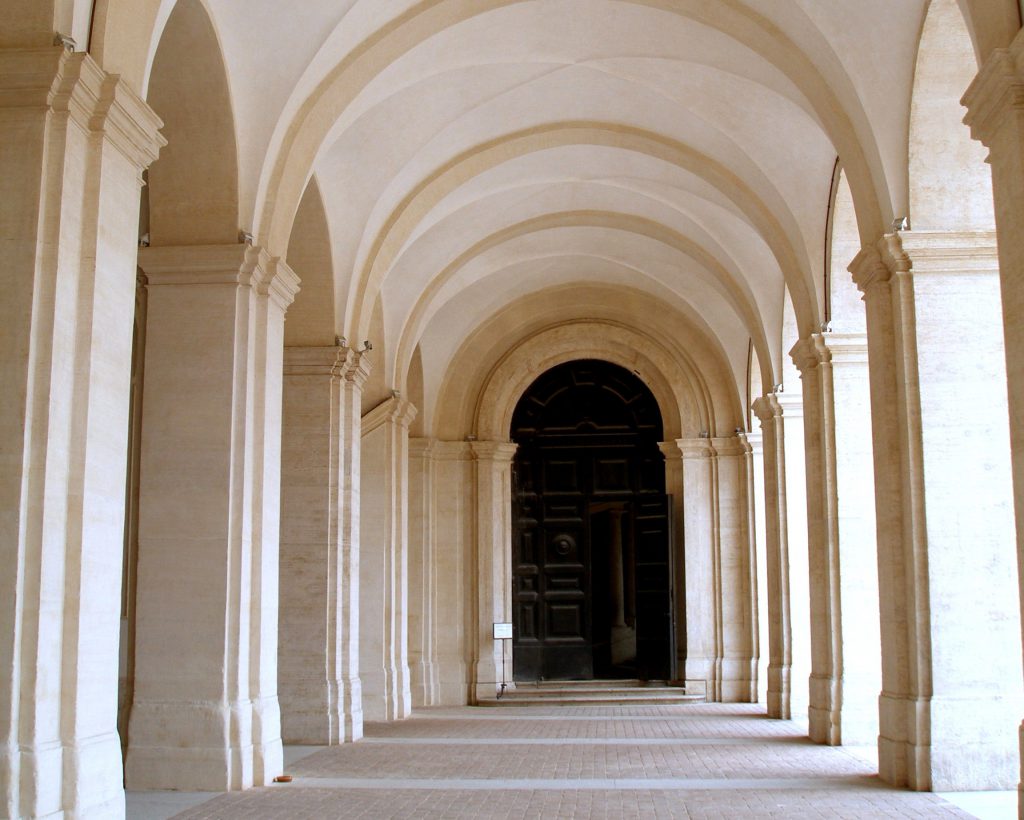Lesson 20: The path of silence and contemplation

In this penultimate lesson I will not introduce any new material, instead I will address some of the questions I received when I first taught this course.
20.1 My sacred word
A number of participants in the course told me what sacred word they came up to, and sometimes the narrative that belonged to it. How marvellous it is to be allowed a glimpse into this!
I myself currently use the word ‘here’. I do recognize how little it is, just this one short word, and that I have the tendency to add on other words as well.
‘Here’. This word stood out to me because it affected me in the beautiful song He is here, by Brian Doerksen. And I also came across it in Brian McLaren’s book, Naked Spirituality, A Life With God in Twelve Simple Words (2011). In that book, the author helps me to reconstruct my prayer life, from the ground up, so to speak. And the first word he brings forward is: ‘Here’. Because I can only start praying where I am now: here. I often add a little to that one word:
Here.
Here I am.
Here you are.
Here we are together.
Is that allowed? I was asked that question. Can we use more than one word? Can we deviate from our chosen word? I’ll repeat what I have said before: “Where the Spirit of the Lord is, there is freedom.” The forms of prayer I have presented in this book are not laws, it is no like this is exactly how it has to be, and not any different. Find your own way, find your own method, find your own prayer form. And let yourself be inspired by existing forms of prayer.
When you practice centering prayer you are not supposed to change the sacred word, because then you will start to ’think’ again. It is wise to persevere with a word that you have chosen or that has chosen you. But it certainly may be that you need time to really find that sacred word. And it may be that over time a new sacred word becomes important to you.
20.2 Your sacred word
Now the big question is: what is your sacred word? Have you already found a word to be your sacred word for a longer period of time?
I asked previous participants in this course that same question. These are some of the responses I collected:
20.3 Many words
One participant asked: How is it possible that you have to use so many words (and lessons) to teach others to be quiet in God’s presence? Yes, that’s a fair question. I do sometimes contemplate this question. How is it possible that so much text is needed, so many books can be written, so many words have to be devoted to praying (almost) without words, to being silent with God?
Fortunately, I read in a book (again!) an answer to the same question, it was written by the Jesuit Franz Jalics, and it is more than 300 pages long… Right at the beginning he explains that his task of initiating people in the way of silence and contemplation with this book presents him with a great difficulty:
‘The difficulty of my task is, paradoxically, its simplicity. God is simple, and the way to the Father that Jesus Christ showed us is a very simple way. It is not always an easy, but a plain and uncomplicated path. It consists in the modest, humble, and unceasing orientation toward God. There is nothing more to say than to draw attention to this orientation towards God. And this is the enormous difficulty of this book, which has nothing to tell you but to turn you to God. Anything more would distract from the essential. It is a contradiction to write many words in order to say that you do not need any words at all.’
Perhaps I can supplement it with this: all these words are mainly about what we have to unlearn, in order to reach the place where we can learn something truly genuine: it is essentially about being quiet in God’s presence.
Perhaps you have already experienced this yourself, but of course the danger is to keep reading endlessly about silence and meditation and contemplation Maybe you enjoy the newfound insights and the freedom it creates because there is so much you are allowed to unlearn, the many words you read you drink them up like water from a cool spring.
But in the meantime you have yet to become quiet…
Reflecting
No reflection this time, let’s just practise straight away!
Practicing
Yet again choose an exercise with lectio divina, the Jesus prayer or the centering prayer, and use the timer so that you don’t have to worry about the time and can practice in peace.
Choose your ’timer’:
You also can listen to the fore mentioned song of Brian Doerksen ‘He is here’.
Inspiring quote
A quote from Jesuit Franz Jalics, about what he discovered in decades of pastoral encounters with people:
A great lot of people are really looking for a simple, spontaneous, and immediate contact with God. Wherever I guided toward simplicity, immediacy, and inner spiritual reality, people were relieved and told me that they had been looking in vain for this simple way for years or decades. Others confessed that they had encountered God secretly in this way without having the courage to say so, because of the fear of not being understood by their pastors.
